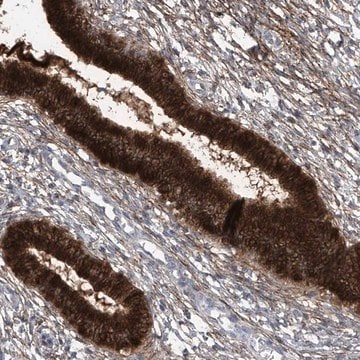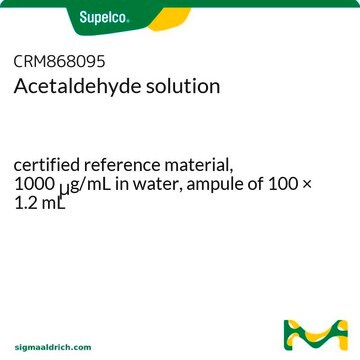868095
Acetaldehyde solution
1000 μg/mL in H2O, analytical standard
About This Item
Recommended Products
grade
analytical standard
CofA
certificate of analysis is enclosed in each package.
packaging
ampule of 100 × 1.2 mL
concentration
1000 μg/mL in H2O
technique(s)
HPLC: suitable
gas chromatography (GC): suitable
density
0.868 g/mL at 20 °C
format
single component solution
storage temp.
2-8°C
SMILES string
[H]C(C)=O
InChI
1S/C2H4O/c1-2-3/h2H,1H3
InChI key
IKHGUXGNUITLKF-UHFFFAOYSA-N
Looking for similar products? Visit Product Comparison Guide
Application
Other Notes
replaced by
Signal Word
Danger
Hazard Statements
Precautionary Statements
Hazard Classifications
Carc. 1B
Storage Class Code
6.1D - Non-combustible acute toxic Cat.3 / toxic hazardous materials or hazardous materials causing chronic effects
WGK
WGK 3
Flash Point(F)
Not applicable
Flash Point(C)
Not applicable
Personal Protective Equipment
Choose from one of the most recent versions:
Already Own This Product?
Find documentation for the products that you have recently purchased in the Document Library.
Customers Also Viewed
Our team of scientists has experience in all areas of research including Life Science, Material Science, Chemical Synthesis, Chromatography, Analytical and many others.
Contact Technical Service










